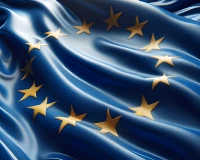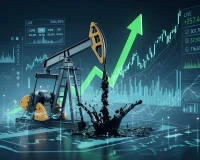The European Union officially adopted its 19th package of sanctions against Russia on Thursday over its war in Ukraine, including a ban on Russian liquefied natural gas (LNG) imports. This move joins new US efforts aimed at reducing Moscow's capabilities.
The LNG ban is scheduled to take effect in two phases, with short-term contracts expiring after six months and long-term contracts expiring on January 1, 2027.
The EU will also tighten the ban on transactions with two major Russian oil companies and impose sanctions on an additional 117 vessels from the so-called "shadow fleet" that enabled Russia to evade previous measures. The sanctions package also includes a new mechanism to restrict the movement of Russian diplomats within the EU.
The EU's foreign policy chief, Kaja Kallas, wrote in a post on the X platform that the package targets Russian banks, cryptocurrency exchanges, and entities in India, China, and elsewhere.
Danish Foreign Minister Lars Løkke Rasmussen stated, according to Reuters, that the LNG import ban is an important step towards the complete phase-out of Russian energy in the EU.
The minister added in a statement: "Sanctions are having a real impact and are harming the Russian economy. Russia is facing increasing difficulty in financing its illegal war of aggression against Ukraine



-255*160.webp)

-255*160.webp)



